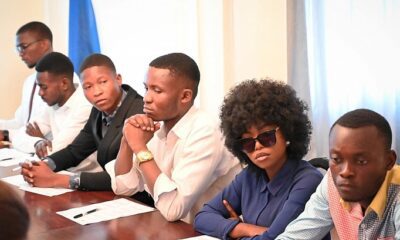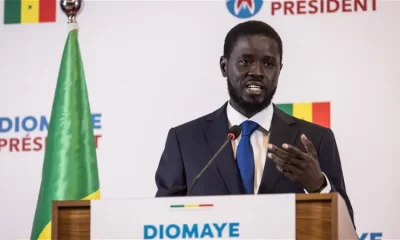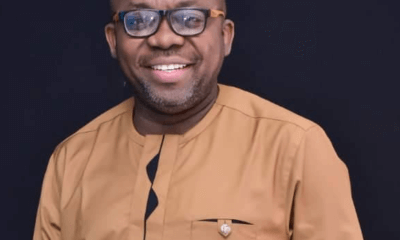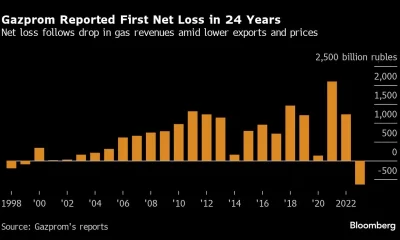Political Issues
The National Question: When Will It Be Answered And By Who? -By David M. Dogo
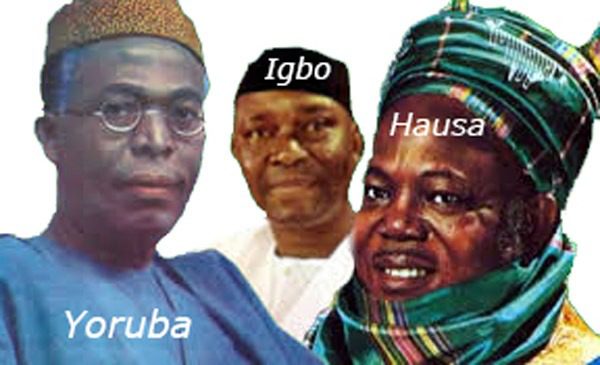

The amalgamation of the Southern and Northern protectorate in 1914 gave birth to the single colony of a country called Nigeria. However, it remained under the British colonial masters until 1960 when it was granted independence. Before then, Nigeria was under the British colonialism for over a century which began with the annexation of Lagos in 1861.
This however was preceded by a constitution enacted by the British Order to become effective immediately after October 1, 1960. One of the constitutions of 1922 known as the Clifford Constitution was meant to provide constitution for the West African subject states; Sir Author Richards’s constitution of 1944 and Sir. John Macpherson were some of the constitutions in existence before the 1960’s constitution by Lord Lugard considered as pre – independence constitution. After then, we had post independence constitutions such as the 1963 Republican constitution, the 1979 presidential constitution and the 1999 constitution respectively. While each succeeding pre-independence constitutional mechanism was enacted through an order-in-council of the British monarch, their post-independence counterparts were enacted via two processes: An Act of parliament (1963 Constitution) and military decree (1979 and 1999).
The various changes in constitution was in a quest for one which sought to give the entity called Nigeria and its people inclusiveness and identity not just in name but in its dreams, vision, mission, aspirations and shared common values.
The patriarchs who were fore runners of this vision had a mind set as encapsulated in the National Anthem and Pledge namely: Dr. Nnamdi Azikiwe, Sir. Abubakar Tafawa Balewa and Chief Obafemi Awolawo of blessed memory. They epitomized the aspirations, dreams; vision and mission of what Nigeria ought to be and should have been.
Nigeria from time immemorial sought to be one indivisible country, its people prayed to be faithful, loyal and honest, to serve the father land with all their strength and might, to defend her unity and with all loyalty uphold her honour and glory. The wording of the anthem and pledge suggested a deepest desire to nurture the country to where it can sit amongst the powerful countries of the world. It also suggested a people committed to stand and defend the unity and sanctity of the Country called Nigeria.
In 1967 to 1970, Millions of lives were lost, properties estimated in billions of dollars were destroyed; once nurtured dream of unity shattered, mutual trust, fragmented; citizenry dedication to the country, corrupted and suspicion gained grounds and reigned. At the end of the civil war however, a declaration of “no victor nor vanquished” was made; another gesture of determination of a people bent on living together.
Fast forward. After so many decades of war, the suspicion and misgivings, thought to have been buried and forgotten, wounds of betrayal, pains of losses, fragmented interest and commitment toward the already injured identity of an entity called Nigeria still rears its head, with different Geo –political Zones clamoring for cessation, yearning for once given up sectional identity for the sake of a united country are coming up with such uproar as though the unity and mutual beliefs once had was nothing short of cosmetic arrangement, strange and dubious marriage. It leaves the younger generation with the thoughts of sincerity of purpose by our forefathers and the arrangement delved into for Nigeria to be one indivisible nation.
No wonder, the Nigeria entity has not made any major strides in its quest for greatness since independence despite the enormity of its human and material resources. Nigeria still lacks patriots and this shows up in the quality of leadership and the administration of governance. Our leaders have been largely sectional, parochial and nepotistic without a vision for the well –being of the entire country. In most cases, same leaders have vandalized the economy by massively looting and raping of the treasury of the common wealth of the people, we have had leaders whose ultimate desires were to stash billions of dollars and pounds sterling in foreign bank accounts, building or buying exotic mansions and properties in foreign lands, leaders who never believed in Nigeria. They pride themselves in sending their children to school outside the country while allowing the educational sector to collapse, obtained medical care outside the country and largely go on vacation outside their own country as though oblivious of the multiplier effect should they choose to plough back their loots into Nigeria or spend those monies within. The Education sector, Health sector, Housing sector and almost all sectors are not working. Many foreign companies have folded up with some running to other African countries, domestic industries have also gone down, hostile business conditions permeates. Companies that could have turned the fortunes of the country around are still comatose. Many states can’t pay basic salaries, pensions of civil servants deducted and saved for them stolen with no one being punished for such crimes. We have seen individuals richer than state government, institutions not functioning and the elites taking advantage of such weaknesses. I therefore ask this question as a young man: Should someone like me belief in the National Anthem and Pledge? Do our leaders belief in the country called Nigeria? Like the proverbial saying goes “actions speaks louder than words” so is the invincible question and answer in the minds of the ordinary Nigerians.
How can the citizens of Nigeria be loyal to the dreams and aspirations of Nigeria, unless it is exemplified by its leaders otherwise, Nigeria will continue to be a pariah state and a place where the fittest are those who survive instead of a Country with structures and institutions. I therefore once again ask: Who is Nigeria and what does it stand for?
An ordinary Nigerian who has been a victim of maladministration by those who should protect and care for him/her through the provision of basic necessities as enunciated by Abraham Maslow such as security, shelter, food is rather compelled to be the Local Government of himself by providing all aforementioned facilities by himself and for himself hence, does not feel that he/she is a stakeholder in the Nigerian project. A strong correlation exists between citizenry welfare and loyalty to a nation state. It has been empirically established that patriotism is a reciprocal benefit a Nation–state enjoys when it is able to provide, protects, secures, sacrifice and govern its people with transparency, accountability, commitment and by example. It is usually associated with a sense of pride for one’s nation as a result of what the nation does or is doing. Terhune (1964) observed, that a nation attains relevance when its citizens are sentimentally attached to the home and also motivated to help their country. Reverse is what we see starting with the elites who have been hypocritical to Nigeria.
The recent spate of hate speeches, agitations and clamoring for self actualization are all products of perceived neglect, economic injustices, nepotism and deprivation by the ruling elites.
So how should the national question be answered? It is simply by first of all going back to the drawing board and ensuring that every Nigerian understands the need for a unified country since a nation is the collective agreement of all its citizenry to stay together. Nobody should be forced to align with any Geopolitical zone against their wishes. The ruling elites must begin to see the country as belonging to every Nigerian and not their personal estate. There must be equality, fairness and justice as against what is currently obtainable. The rule of law must be upheld, those who break the laws must be punished and there should be no sacred cows. Resources and opportunities must be equitably shared. When this begins to play out, the citizens would belief in the dreams, vision and missions of the Country called Nigeria; until then, the national question remains!
DAVID M. DOGO – M.PHIL/P.HD STUDENT, ABU ZARIA

